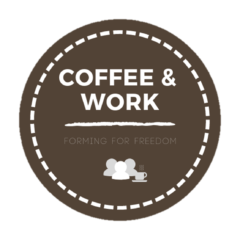Lauren Weber, a journalist who writes about work and career for The Wall Street Journal, published a story on February 2 (of 2019, of course) with the title “The End of Employees”). The first thing that came up to my mind was: Oops! We have another point of view coming around.
In the extensive and well articulated story, Weber portrays what some ideological currents tend to call “job insecurity”: outsourcing is the tonic of the author’s narrative. Refering some cases, as Virgin America, Wal-Mart and Alphabet, Lauren points out the absence of direct employment ties, due to the construction of suppliers’ cadres, the main ones responsible for the operation of the services. To mention one of the examples of the text, before its negociation, Virgin counted on service providers for luggage organization, ticket sales, food, maintenance and other demands that are fundamental to the operation and image of the company.
But why are companies opting for this configuration?
According to Weber’s report, the answer lies in the increase in control made possible by this type of employment relationship.
And how does this configuration affect workers’ lives?
This reflection, more extensively explored by Weber’s text, emphasizes: lower wages (obvious), and the absence of a sense of belonging, since the individual is confused in answering the more trivial question in social circles: “where do you work?”
And to these groups are joined the freelancers, workers with seasonal contracts, entrepreneurs, in synthesis: professionals without a formal and lasting bond with the organization to whom they dedicate their time, their knowledge, their body and their intelligence. And it is here that makes sense the question that gives rise to this text:
When we talk about the future, are we talking about jobs or work?
If we are talking about employment, our focus is on contracts, on the legal bonds that will have spills there on the subjective part of the individual. If we are talking about work, the Achilles heel is the process, it is the choices made in the situations and that constitute the great organizational block, that build and ratify reputations, that guarantee sanity to the life of the individuals.
The distinction between employment and work is clear, just as it’s clear that we are rarely concerned about work. Our constant concern is the accounts, the advantages, the guarantees that we will come out with something materialized in the end, even if the material has a very short duration when compared to the emotional, subjective, identity and collective damages.
And for you, what does it matter? Your job or your job?
Originally Posted by Gislene Feiten Haubrich in https://bit.ly/2TQiR1c
